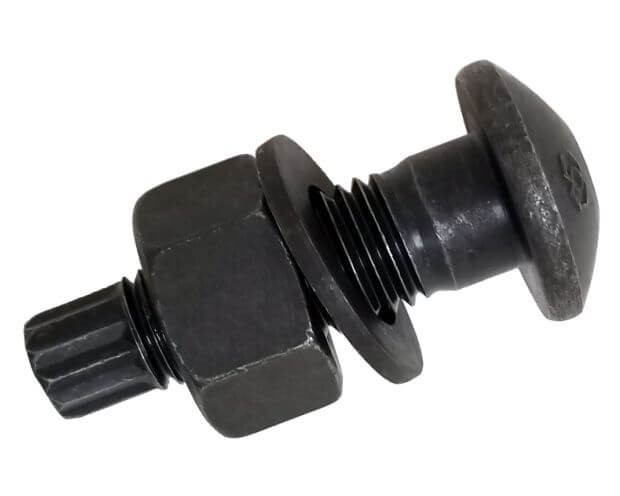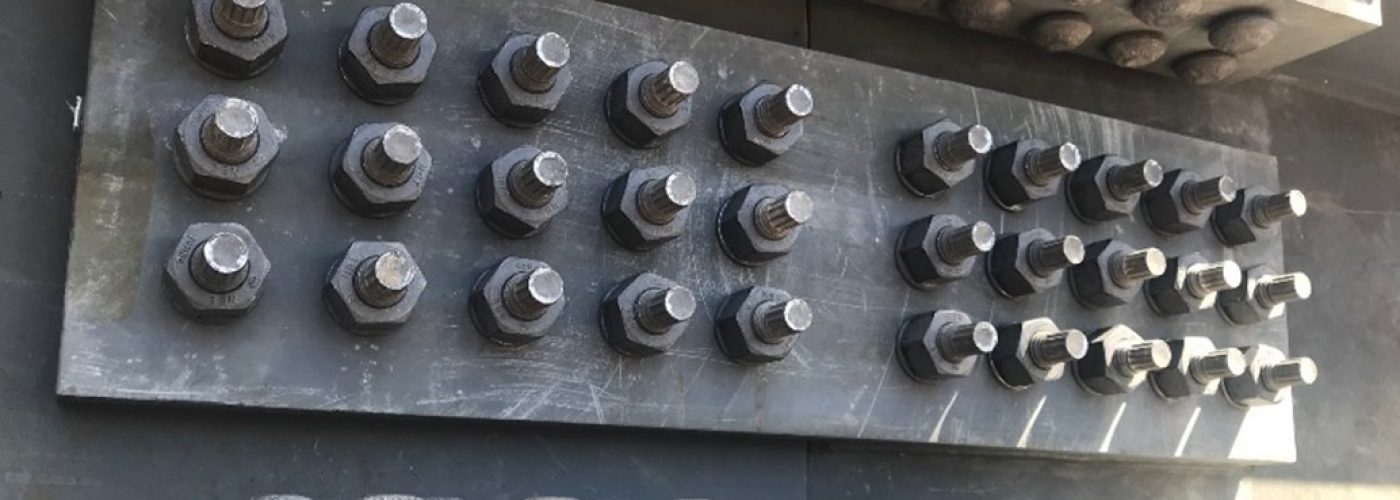In the field of structural engineering and construction, no part is more important in keeping a structure safe, stable, and lasting than any other. Of these components, tension control bolts (TC bolts) are a unique innovation that’s made a huge difference in the way we build.
These specialized bolts are engineered for precise tensioning of connections, keeping them secure under even the most extreme conditions. What exactly are these tension control bolts and why are they so important?
So let us uncover what they mean in detail.
What Are Tension Control Bolts?

High strength bolts for use mainly with structural steel connections are often called TC (tension control) bolts. The joint is uniquely designed that can be locked to specific tension so that the joint would be secure and stable. Unlike traditional bolts which need torque to lock, TC bolts are installed in a special way which guarantees the tensioning that is consistent and accurate.
A TC bolt includes a spline end, a small protrusion that shears off as soon as the bolt has reached the correct tension. The visual evidence of this shearing action is a welcome addition to the quality control on the bolt itself and indicates proper installation. TC bolts are typically utilized in applications demanding the highest level of structural integrity, including bridges, skyscrapers, and industrial systems.
The Science Behind Tension Control Bolts
It is vital to have a solid understanding of the science that behind the function of TC bolts in order to comprehend their significance. In the field of structural engineering, the clamping force that is generated by the bolt is directly proportional to the strength of a connection. Because of this clamping force, the materials that are attached to one another are held together and are prevented from slipping or separating when that load is applied.
To achieve this clamping force, traditional bolts rely on torque as their primary mechanism. Torque, on the other hand, is not always dependable since it does not take into consideration other elements, such as friction, which can change based on the condition of the threads and the surfaces that are being joined.
The consequence of this is that conventional bolts might not always be able to deliver the consistent tension that is required for a secure connection. Learn more here https://www.cross-safety.org/uk/safety-information/cross-safety-report/incorrectly-installed-tension-control-bolts-could-have-1196.
On the other hand, TC bolts are produced with the intention of removing this uncertainty. They ensure that the bolt is tightened to the precise tension that is required for the joint by employing a tensioning technique that is calibrated using technology.
Utilizing a specialized wrench that is designed to hold the spline end of the bolt is the means by which this level of precision is accomplished. The bolt is stretched to the desired tension by the wrench as it revolves, and after the desired tension is reached, the spline end is sheared off.
After going through this process, you may rest assured that the bolt will not be under-tightened or over-tightened, both of which have the potential to undermine the connection’s integrity.
Why Tension Control Bolts Matter
The significance of TC bolts cannot be emphasized, particularly in applications where safety and dependability are non-negotiable requirements. Here are some of the most important reasons why these bolts are absolutely necessary in contemporary construction:
Safety
Safety is a primary concern in all construction projects, and TC bolts help to make it possible for structures to bear the load they have to endure. TC bolts are secure connections whether they’re holding the weight of a skyscraper, the vibrations of a bridge, or the stress of heavy machinery in an industrial facility.
The tensioning of the bolts to their precise value minimizes the risk of bolt failure, which could result in disastrous consequences. You can actually purchase TC Bolts from BACO or another business to keep your structure safe.
Consistent Performance
With traditional bolts, one of the biggest issues is consistent tension in all connections. Even clamping forces can vary due to variations in friction, thread condition, and installation technique and can weaken the overall structure.
TC bolts have the variability eliminated by forcing each bolt to be tightened to the same exact tension. In large scale projects, where hundreds or even thousands of bolts are in use beyond the obvious repeating processes, such consistency is important.
Ease of Installation
The installation of TC bolts is easy and efficient, but they require special tools. Probably the most direct method to the secured bolting is the shearing off of the spline end that provides a clear visual confirmation the bolt has been properly tightened and reduces the need for any additional testing or inspection.
Not only does this make the construction process faster, but it also makes it less likely to have a human error. Discover more here.
Durability and Longevity
TC bolts are designed to build structures. The particular tensioning process guarantees that the bolts can withstand these stresses and strains over the life of them, under environmental factors like wind and earthquakes, or under constant loads by daily use. It makes the structure last longer and lessens the maintenance costs.
Applications of Tension Control Bolts
TC bolts are used in a wide range of applications, each of which benefits from their unique properties. Some of the most common uses include:
Bridges
Bridges are subjected to constant dynamic loads, from the weight of vehicles to the forces of wind and water. TC bolts are used to secure the steel components of bridges, ensuring that they can withstand these forces without failing. Their precise tensioning is particularly important in seismic zones, where bridges must be able to absorb the energy of an earthquake.
Skyscrapers and High-Rise Buildings
The construction of tall buildings requires connections that can support immense vertical and lateral loads. TC bolts are used to join the steel beams and columns that form the skeleton of these structures, providing the strength and stability needed to keep them standing tall.
Industrial Facilities
Factories, power plants, and other industrial facilities often involve heavy machinery and equipment that generate significant vibrations and stresses. TC bolts are used to secure the structural components of these facilities, ensuring that they can operate safely and efficiently.
Stadiums and Arenas
Large public venues like stadiums and arenas require robust connections to support the weight of the structure and the dynamic loads created by crowds and events. TC bolts are used to create the strong, reliable connections needed to ensure the safety of everyone inside.
The Future of Tension Control Bolts
As construction techniques and materials continue to evolve, so too will the role of TC bolts. Advances in technology are likely to lead to even more precise and efficient installation methods, further enhancing the performance and reliability of these bolts. Additionally, the growing emphasis on sustainability in construction may drive the development of TC bolts made from eco-friendly materials or designed for easier recycling.
Summing Up
Tension control bolts are a cornerstone of modern structural engineering, providing the precision, reliability, and safety needed to build the structures that define our world. From bridges and skyscrapers to industrial facilities and stadiums, TC bolts play a vital role in ensuring that these structures can withstand the test of time.
By understanding their importance and using them correctly, engineers and construction professionals can continue to push the boundaries of what is possible, creating safer, stronger, and more resilient buildings for generations to come.





